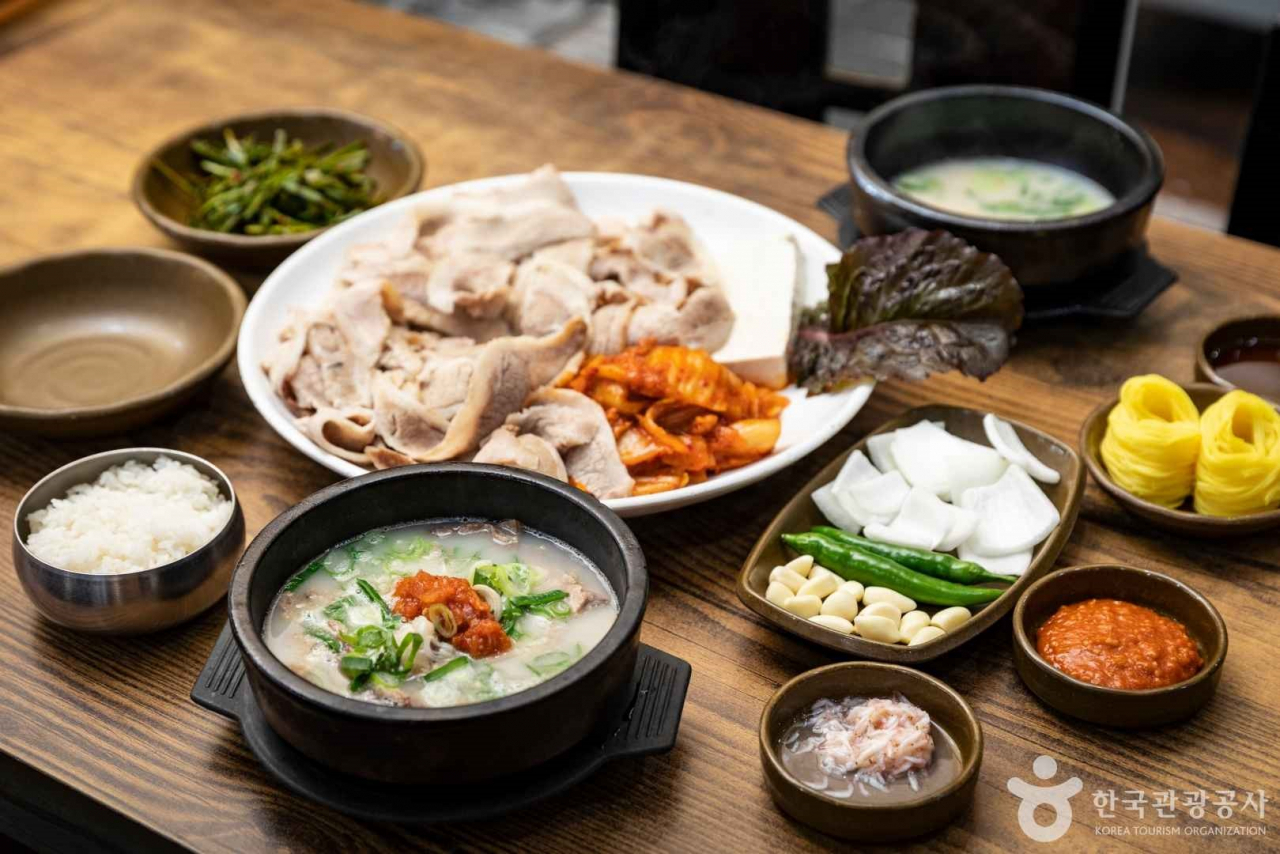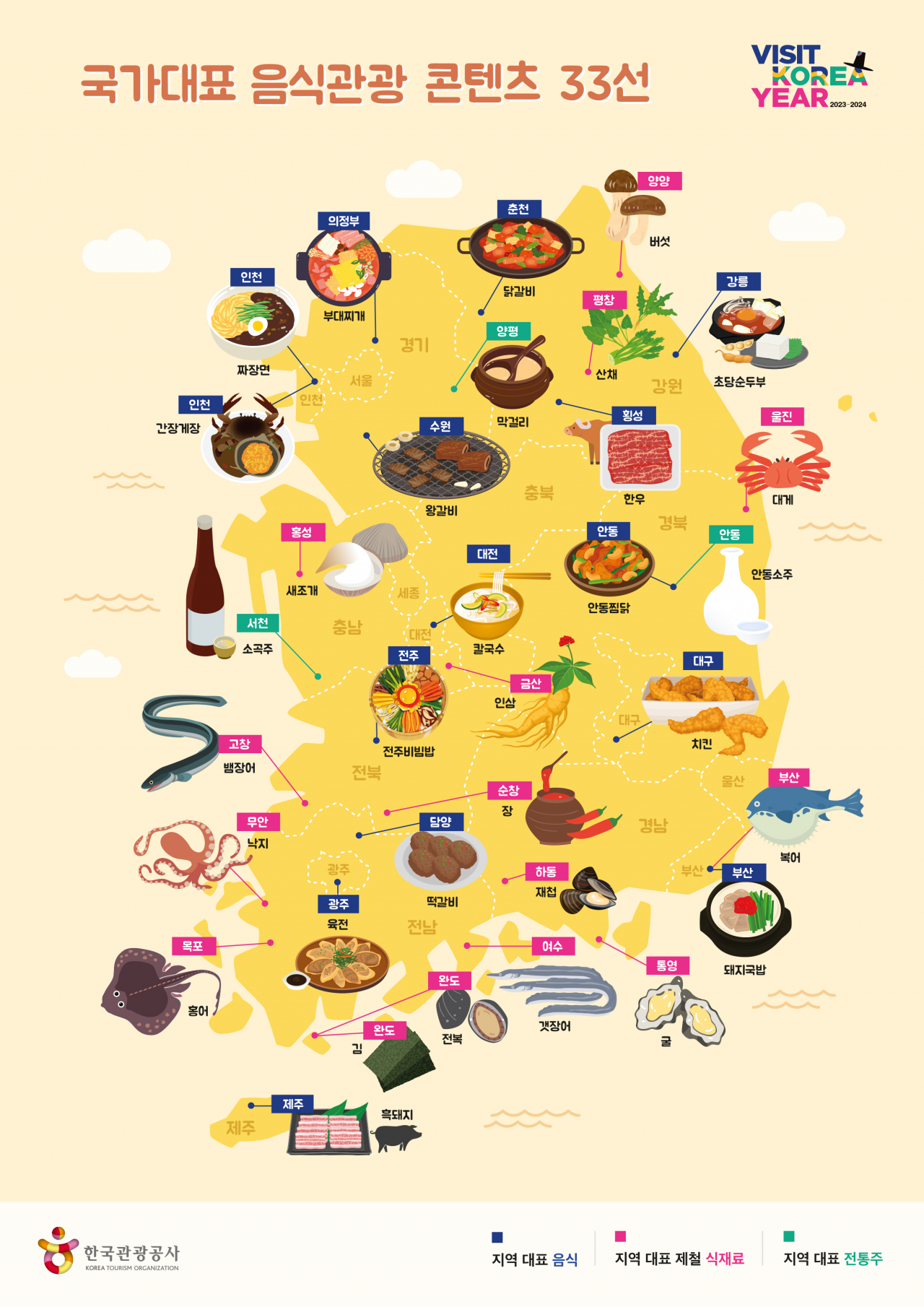 |
Tteokgalbi is served in Damyang, South Jeolla Province. (KTO) |
With the aim to promote its rich culinary culture and South Korea as a food tourism destination, the Ministry of Culture, Sports and Tourism and the Korea Tourism Organization have launched the “Taste Your Korea” campaign.
Aside from always satisfying street foods in the vein of gimbap and tteokbokki, popular Korean dishes like bibimbap -- typically made with rice, an array of vegetables, beef and savory bibimbap sauce -- and Korean-style fried chicken are among the 33 delicacies highlighted by the state tourism body.
Local and overseas epicureans can embark on a Korean gastronomic journey with local wonders organized into three food themes: local specialties, seasonal ingredients and traditional liquors.
The list of regional delicacies includes Busan’s pork gukbap, a type of rice soup, Suwon’s wanggalbi, or large grilled barbecue, Damyang's tteokgalbi, or short rib patties, Chuncheon’s dakgalbi, or spicy-stir-fried chicken, Uijeongbu’s budaejjigae, also known as army stew or Korean spicy sausage stew, and several more.
 |
Busan's gukbap (KTO) |
Some iconic items include Jeju Island’s black pork belly, Uljin snow crab, Yangyang mushrooms and Geumsan ginseng, which were selected as the must-try seasonal ingredients to satisfy even the pickiest epicureans.
Seocheon’s sogokju, a type of rice wine, Yangpyeong’s makgeolli, a milky-colored and lightly carbonated variety of rice wine, and Andong’s soju were picked as the iconic liquors of the country.
The KTO said the individual food culture, history and lesser-known stories pertaining to these Korean dishes were scheduled to be published online to offer a better understanding about the country’s popular cuisines to global guests.
“Collaborations with online travel agencies will be made and Google reservations will be available starting from September,” a KTO official said.
More information on Korean food tourism is available at the KTO’s official website.
 |
The image provided by the Korea Tourism Organization shows 33 Korean delicacies selected for "Taste Your Korea." (KTO) |






![[Today’s K-pop] Blackpink’s Jennie, Lisa invited to Coachella as solo acts](http://res.heraldm.com/phpwas/restmb_idxmake.php?idx=644&simg=/content/image/2024/11/21/20241121050099_0.jpg)
